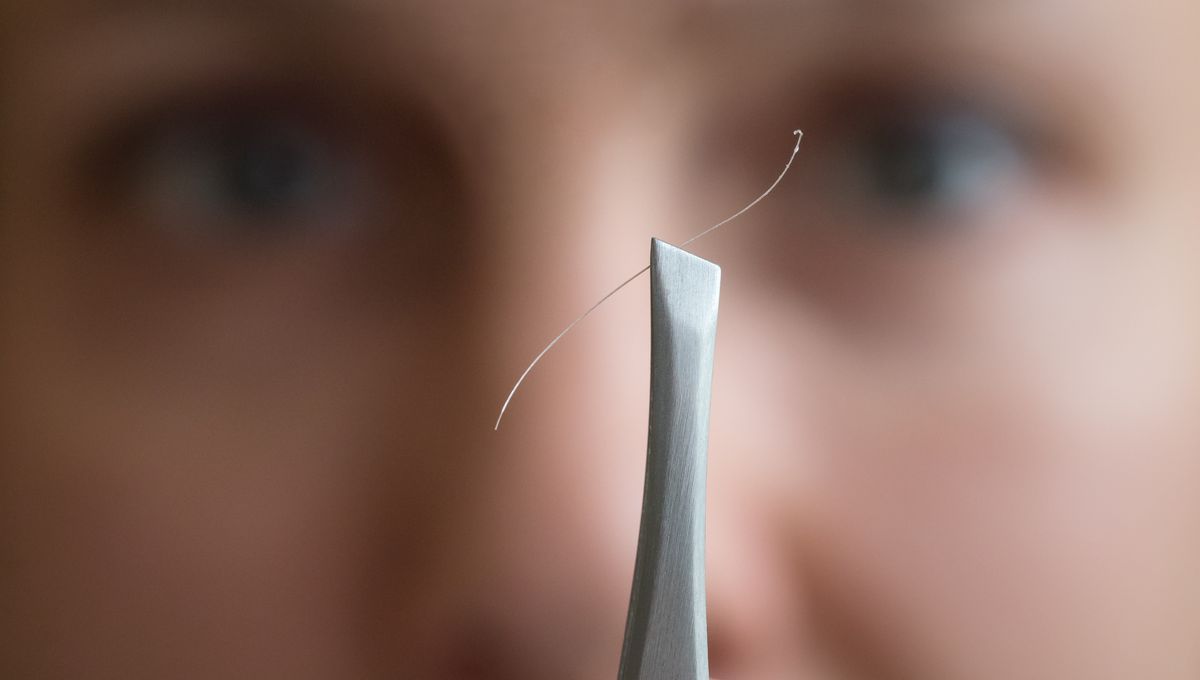
Some pain just hits different. Even without getting into the age-old argument about childbirth vs. a kick in the balls, everyone knows that papercuts hurt way more than they should, while the pain of falling into the world’s most dangerous plant sounds like a very bad time indeed. Having your hair pulled is one pain that seems to strike super-fast – and if you’ve ever had that realization, congratulations: You’re about to be vindicated by science.
ADVERTISEMENT GO AD FREE
As reported by Laura Sanders at Science News, new neuroscience research has demonstrated how the pain signals triggered by hair-pulling are some of the fastest-moving that have been observed.
The study recruited some brave participants who underwent an experiment in which a single hair was pulled with a variety of amounts of force. Some of the participants were controls, who presumably felt every second of the inevitable pain. The others fell into two different groups: those in whom some key nerve fibers, called Aβ fibers, had been selectively blocked; and those with a condition called PIEZO2 deficiency syndrome.
PIEZO2 deficiency syndrome is a rare genetic condition in which mutations in the gene encoding the PIEZO2 protein cause it to lose its usual function. This causes a set of symptoms known as arthrogryposis, where multiple joints in the body are stiff or frozen.
PIEZO2 has another role – it’s involved in touch perception, but it wasn’t previously considered essential for transmitting pain signals. However, the team found that the participants with PIEZO2 deficiency syndrome didn’t feel as much pain when their hair was pulled, showing that this protein has a particular role in transmitting pain from hair follicles.
Hair-pulling pain also differs from other pain in how it travels to the brain. It moves along Aβ fibers, as the team demonstrated in their experiments. The participants in whom these fibers were blocked didn’t feel any pain when their hair was pulled.
Aβ fibers carry signals much faster than other types of nerve fibers. Usually, pain travels along the slower fibers – which is why many believe that rubbing an injury when you’re hurt, activating the speedy Aβ fibers instead, can help relieve the pain.
ADVERTISEMENT GO AD FREE
This all means, according to first author Emma Kindström, that a hair pull is around 10 times as painful as a pinprick, and travels along nerve fibers at about 160 kilometers per hour (100 miles per hour).
That’s not to say, however, that individuals don’t still differ in their response to this pain. Many people with trichotillomania, a condition in which they compulsively pull out their own hair, don’t report pain when doing so. Research has sought to understand whether this means these individuals might physically have a different tolerance for pain; but so far, the data doesn’t seem to back this up, suggesting something else is going on.
Experiencing pain when your hair is simply touched or moved is also a very real phenomenon that can be a sign of a number of underlying conditions.
ADVERTISEMENT GO AD FREE
Now, if someone could only explain to this author why having her hair pulled causes uncontrollable sneezing, that’d be great, thanks.
The study was presented at the Society for Neuroscience annual conference on October 8, 2024.
Source Link: Yep, The Pain Of Pulling Hair Really Does Hit Faster Than Other Pain